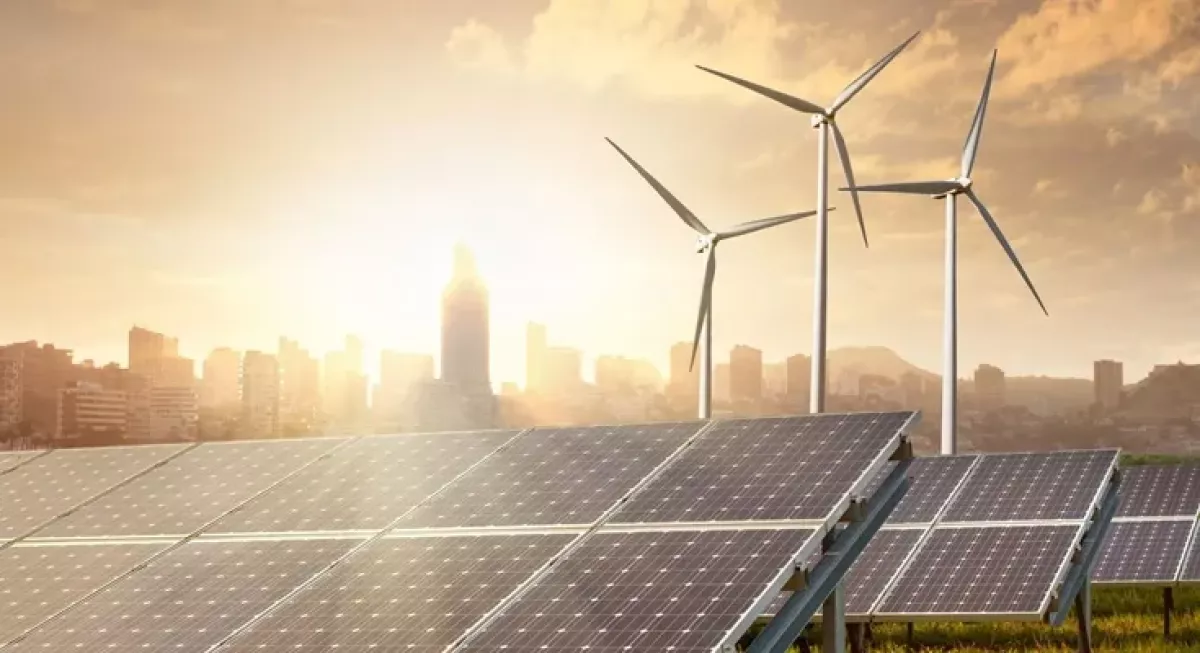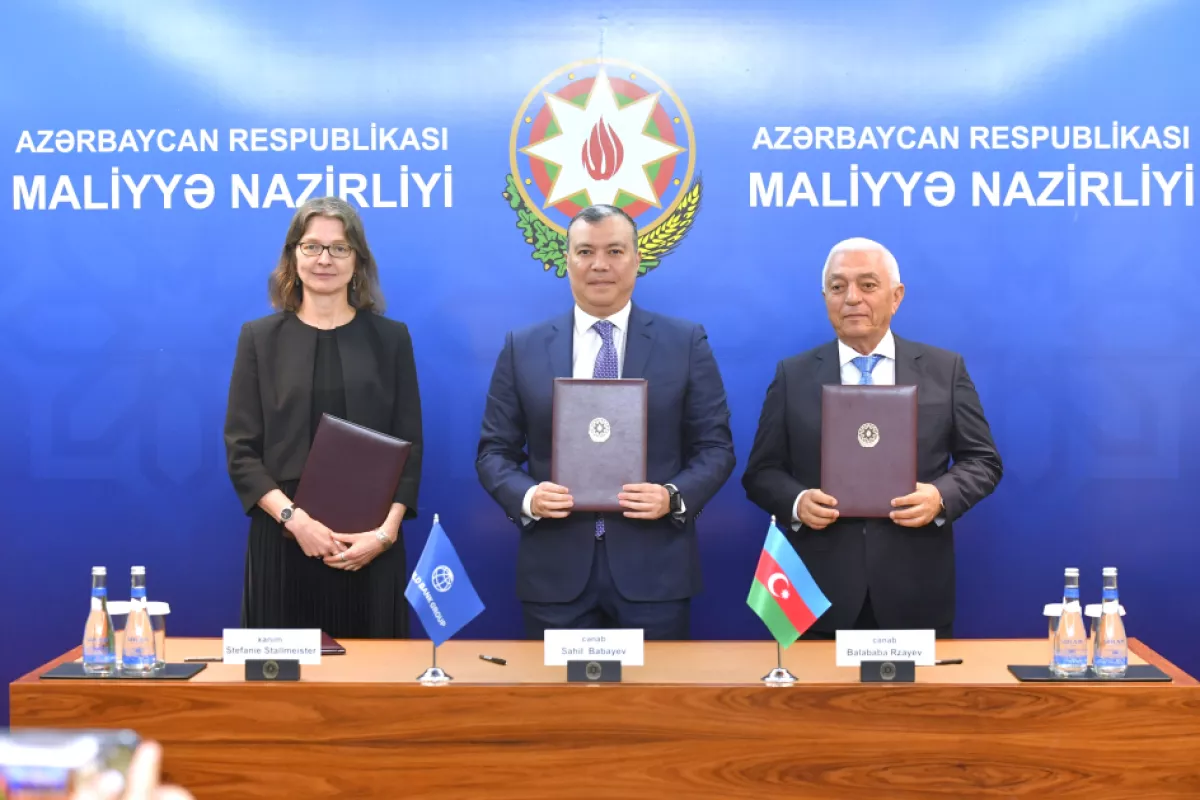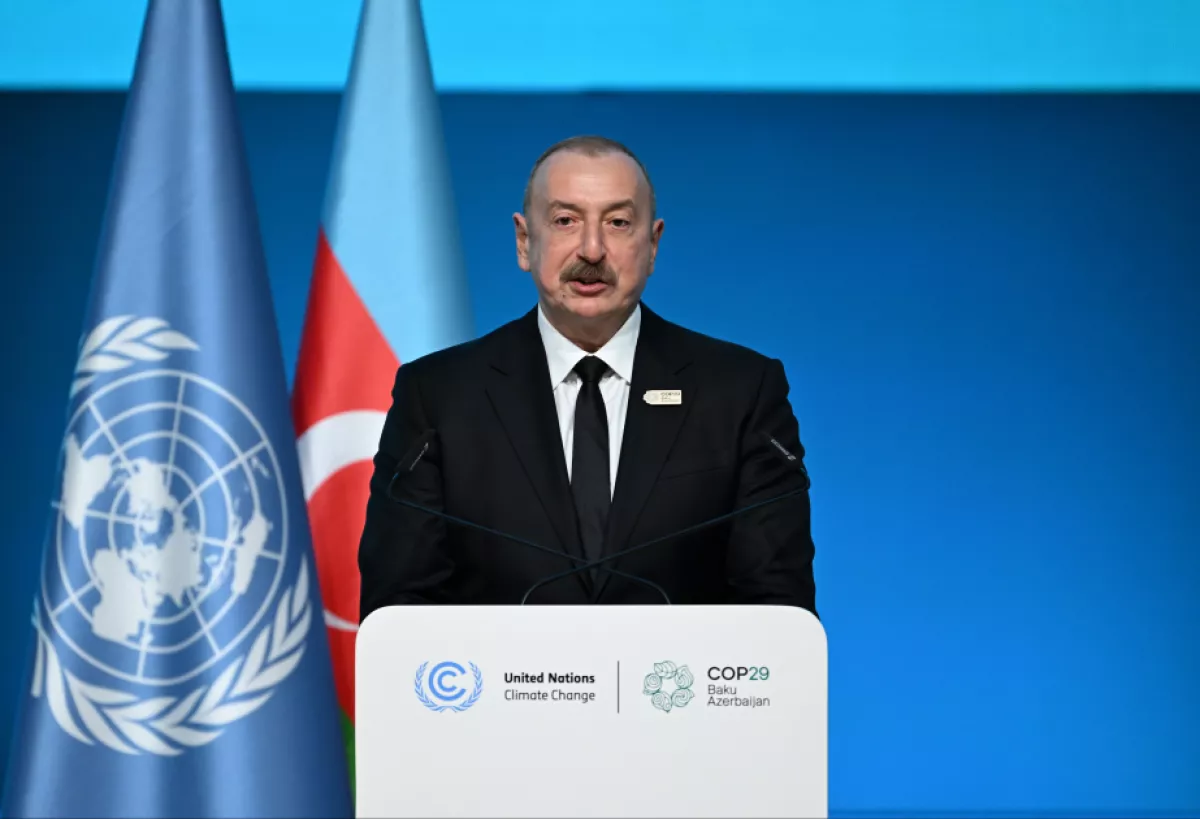Azerbaijan launches mega renewable energy project Wind and Solar power as the nation’s new currency
Azerbaijan is deepening its collaboration with international financial institutions to secure funding for renewable energy development. Recently, JSC “Azerenerji” and the Azerbaijan Ministry of Finance signed a loan agreement with the International Bank for Reconstruction and Development (IBRD), a key branch of the World Bank. This agreement supports efforts to integrate renewable energy sources into the country’s unified power grid.
The next phase of the joint AZURE project with the World Bank aims to modernise and expand Azerbaijan’s energy infrastructure. This upgrade is expected to attract greater private investment into the alternative energy sector, accelerating the nation’s transition to sustainable power generation.
Azerbaijan has been a full-fledged member of the World Bank Group since 1992. Over the past three decades, the country has received approximately $4 billion in state-guaranteed concessional loans from this donor institution for more than fifty investment projects, as well as $30 million in technical assistance and grants for 115 initiatives. With the World Bank’s financial support, numerous projects have been implemented targeting the development of the agricultural sector and rural communities, water management infrastructure, transport, the extractive sector, and energy. Additionally, the Bank has supported the adoption of advanced international legal and administrative practices, among others.
However, over the past five to six years, influenced by a series of global crises and shifting market dynamics, most international financial institutions (IFIs) have begun to restructure their financing approaches. In particular, their new priorities have shifted toward projects in renewable energy and energy efficiency, solid waste management and the creation of environmentally friendly recycling industries, the rehabilitation of polluted areas, the promotion of “green” trends in the financial sector, and the digital transformation of the economy.

A similar diversification is taking place in the long-term structure of the World Bank Group's loan portfolio under the country programme. World Bank experts are ready to assist Azerbaijan in improving the efficiency of heating systems in the public utilities sector, which currently faces significant issues. In the future, the Bank also intends to support priority projects in the development of green industry, IT startups, the implementation of Internet of Things (IoT) technologies, and the application of digital solutions in the development of smart villages and cities.
In particular, for several years now, experts from the World Bank’s arm — the International Finance Corporation (IFC) — have been assisting Azerbaijan’s Ministry of Energy in developing sector-specific roadmaps and preparing for the production and export of low-carbon hydrogen fuel, as well as advancing wind energy projects in the Caspian Sea. Meanwhile, the World Bank also plans to support Azerbaijan in developing a roadmap for expanding green finance capabilities and designing instruments for green investment.
Three years ago, World Bank experts, together with relevant EU organisations, signed an Administrative Agreement on the Azerbaijan Technical Assistance Facility (AZTAF), allocating €5.25 million in grant support to the Azerbaijan government. This funding is aimed at projects under the “Energy Efficiency and Climate” initiative, support for the “Energy Efficiency Fund,” and the development of a “National Renovation Programme Roadmap” in Azerbaijan.
Key cooperation between the World Bank and Azerbaijan in support of the green transition is being carried out under the “Azerbaijan Renewable Energy Power Project” (AZURE). Recently, JSC “Azerenerji” and the International Bank for Reconstruction and Development (IBRD) signed a $173.5 million loan agreement for the expansion of renewable energy use in Azerbaijan. A corresponding guarantee agreement was also signed between Azerbaijan’s Ministry of Finance and the IBRD as part of the AZURE project initiatives. It is reported that the loan has a 15-year term with a five-year grace period and is to be repaid by the end of 2039. The Azerbaijani government’s contribution to the project amounts to $31.2 million, which will be covered through VAT and customs duty payments.

The funds allocated for the AZURE project will be used to modernise and expand key power transmission lines and substations to integrate renewable energy generation capacity into the country’s unified power system. This includes financing the connection of solar and wind power plants — primarily built by private investors — with a total capacity of 1 GW. Specifically, the project envisions connecting the 240 MW Absheron-Garadagh wind power plant to the transmission network, enhancing the security and expanding the 330/500 kV high-voltage grid, and improving the stability of the transmission system to enable the future integration of 1.8 GW of renewable energy into the national grid.
The AZURE project, in cooperation with the World Bank, is expected to create favourable conditions for further private investment in the renewable energy sector, particularly in onshore wind energy. The project comes at a time when Azerbaijan is considering increasing its electricity exports and is projected to attract an initial $384 million in private investment, paving the way for continued growth in the green energy sector.
“The project will provide reliable, affordable, and sustainable electricity that citizens and businesses in the country can count on,” said World Bank Country Manager for Azerbaijan, Stefanie Stallmeister, in March this year. “By supporting the development of the power grid, we are contributing to Azerbaijan’s long-term energy security goals, laying the foundation for sustainable growth and new opportunities.”

In November 2024, during the COP29 Climate Summit, President of Azerbaijan Ilham Aliyev announced plans to attract investors by 2030 for the construction of hydro, wind, and solar power plants with a combined capacity of around 6 GW. A significant share of the electricity generated from these green sources is intended for export. In this context, the AZURE project is strategically important for integrating electricity generated by the renewable energy sector into the national power system, as well as for its subsequent export via high-voltage transmission lines and substations.
Notably, under the new Country Partnership Framework (CPF) with Azerbaijan, approved by the World Bank Group’s Board of Executive Directors in February 2025, the World Bank and the IBRD plan to allocate between $1 billion and $1.5 billion over the next five years to support a number of projects aimed at helping the country transition to a more competitive, green, and inclusive economy. Specifically, the IBRD’s preliminary plan for the 2025–2026 fiscal years includes 4 to 5 new projects at the request of the Azerbaijani government. Annual average financing over the five-year period is expected to range between $250 million and $400 million, including an additional $225 million earmarked for renewable energy development under a regional programme.
Among the World Bank’s priorities for the next five years are attracting private investors to the renewable energy sector, developing battery storage systems, and creating green energy corridors. Loans will also be provided to support sustainable urban ecosystems, implement climate-smart agricultural practices, improve water-use efficiency, and advance the development of the Middle Corridor, including the deployment of advanced technologies such as artificial intelligence.








